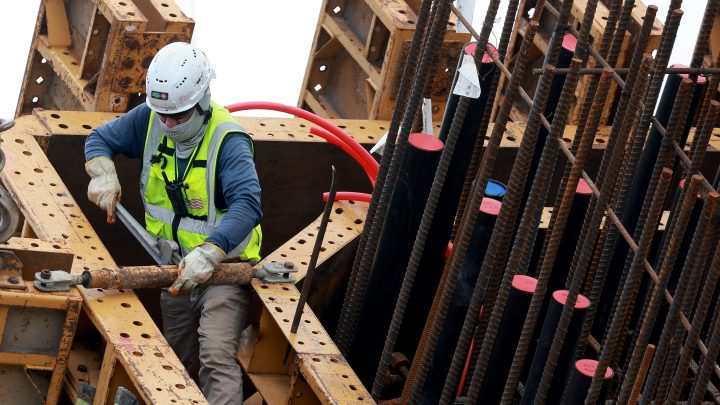
Labor costs are still going up, but the rate is going down
Labor costs are still going up, but the rate is going down

The Federal Reserve’s not yet ready to cut interest rates, as Chair Jay Powell made clear Wednesday. But the central bank is getting more data that could support rate cuts later this year.
The latest: The cost of employing people — wages and benefits — isn’t growing nearly as fast as it was a couple of years ago. Labor costs barely budged in the last quarter, according to Bureau of Labor Statistics data out Thursday, and 2023 overall saw the slowest rate of labor cost growth in the past three years. Could that mean inflation will continue to decline too?
A couple of years ago, as the economy emerged from pandemic shutdowns, the labor market was pretty wild.
“We had this sort of high-velocity, high-churn economy,” said Skanda Amarnath, who heads the research group Employ America.
In 2021 and 2022, a ton of hiring was going on but not enough workers to fill all the open positions.
In such an environment, “employers probably have higher search costs, in which there is more of a need to increase wages to protect against turnover,” Amarnath said.
But a lot of turnover happened anyway as workers job-hopped — drawn by higher salaries and better benefits.
People feared this could drive up inflation in the long term. That shifted in 2023, said Nicole Smith at Georgetown University.
Now, more people are back in the job market, so businesses don’t have to court them as aggressively, and fewer workers are quitting.
“They’re able to keep the talent that they’ve cultivated for a longer period of time and continue to increase productivity with that talent pool,” said Smith.
And, she added, while wages are growing more slowly now, they’re not falling either.
And those fears that rising wages would lead to long-term inflation? The slowdown in labor costs shows that didn’t pan out, said Aaron Terrazas, chief economist at Glassdoor.
“It was a short-term shock associated with a momentarily tight labor market and 2020, ’21 and 2022 that was associated with kind of a lot of demand in the economy. That passed,” Terrazas said.
This year, he said, the labor market could continue to cool. But since the unemployment rate is historically low right now, the economy can probably handle it. And inflation could keep easing up.
There’s a lot happening in the world. Through it all, Marketplace is here for you.
You rely on Marketplace to break down the world’s events and tell you how it affects you in a fact-based, approachable way. We rely on your financial support to keep making that possible.
Your donation today powers the independent journalism that you rely on. For just $5/month, you can help sustain Marketplace so we can keep reporting on the things that matter to you.











